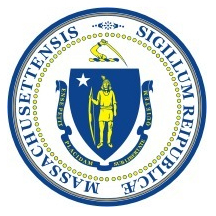by
Astrid Fiano, DOTmed News Writer | August 25, 2010
A new law passed in Massachusetts will expand the Prescription Monitoring
Program to allow prescription history reports to be transmitted to prescribers and pharmacists in an electronic system. Lawmakers hope the move curbs the practice of patients shopping for doctors who will prescribe unnecessary medications, and controls what some think is an OxyContin abuse epidemic.
"By signing this bill, we are reaffirming our commitment to the public health of communities across the Commonwealth," said Gov. Deval Patrick in a statement. "I want to thank our legislative and private partners for their dedication and advocacy on behalf of the men and women who wrestle with substance abuse every day. This law will help us provide those individuals with the supports they need and bring us to a healthier Commonwealth for the future."
The governor signed "An Act Adding Safeguards to the Prescription Monitoring Program and Furthering Substance Abuse Education and Prevention" earlier this month. The law will also increase the scope of monitored medications from Schedule II controlled substances to include all federally-controlled substances including Schedules II through V. If a patient is receiving a controlled substance from more than one source and in quantities determined to be harmful to their health, the practitioners dispensing the controlled substance will be notified.



Ad Statistics
Times Displayed: 1581
Times Visited: 8 Keep biomedical devices ready to go, so care teams can be ready to care for patients. GE HealthCare’s ReadySee™ helps overcome frustrations due to lack of network and device visibility, manual troubleshooting, and downtime.
Some of the law's other provisions include:
--Practitioners who prescribe controlled substances will be required, in order to obtain or renew their professional license, to complete training on effective pain management; identification of patients at high risk for substance abuse; and counseling patients about the side effects, addictive nature, and proper storage and disposal of prescription medications.
-- Persons seeking medical assistance in good faith for a drug related overdose will not be charged or prosecuted for possession of a controlled substance if the evidence for the charge was obtained as a result of the seeking of medical assistance.
-- The state department of public health will produce a pamphlet with contact information for its bureau of substance abuse services and substance abuse helpline, and include information on the benefits and availability of treatment and on the prevention of future overdoses. Any physician or hospital treating a person under the age of 18 for a drug or alcohol overdose will be required to notify the minor's parents or legal guardian of the overdose and provide them with the pamphlet.

